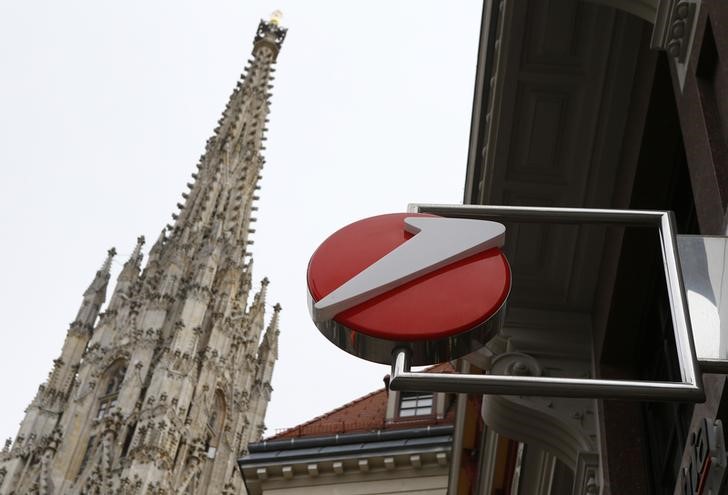This post was originally published on this site
https://i-invdn-com.akamaized.net/news/LYNXNPEBAB0AI_M.jpg © Reuters.
© Reuters.By Geoffrey Smith
Investing.com — The headline news looks dire, but an arcane detail in the accompanying documents suggests that Unicredit is about to turn a corner – and that other European banks may follow it.
Italy’s second-largest bank said Tuesday it will cut 8,000 jobs and close 500 branches, the latest in a long line of restructuring measures by Europe’s banks this year aimed at slimming down networks made uneconomic by digitalization and negative interest rates.
However, the more eye-catching part of the bank’s new four-year plan is its intention to buy back 2 billion euros in shares – its first buyback in a decade. That’s a radical departure from the trend of the last 10 years in which Unicredit and most other banks have been furiously trying to accumulate capital.
Unicredit’s plan would allow it to pay out 40% of underlying net profit, double its previous target. The total payout, including dividends and buybacks could rise to 50% in 2023.
The bank’s shares rose as much as 2% in early trading in Milan before falling back to be up 0.9% by 5 AM ET (1000 GMT), still the best performing bank stock in Europe on a morning when most bourses were under pressure from President Donald Trump’s latest tariff salvo. The was down 0.2% while the was up 0.4% and the French , where most of the luxury names targeted by Trump are concentrated, was down 0.5%.
The big question is whether Unicredit’s regulators at the ECB will agree. The obvious answer is that it’s highly unlikely CEO Jean-Pierre Mustier would risk the embarrassment of rejection, and that, privately, ECB supervisors have already indicated they will support the request.
Indeed, the whole plan appears predicated on the assumption that the ECB is going to loosen its approach to measuring bank capital requirements in a manner that is arcane, but important for shareholders. Under its previous head Daniele Nouy, the ECB’s Supervisory Board had broadly insisted that so-called Pillar 2 capital requirements (set on a bank-by-bank basis according to an institute’s risk profile) must be satisfied with common equity – even though EU law allows banks to use subordinated debt instruments instead.
Under the new plan, Unicredit would only have the space to buy back shares if it is allowed to exploit the freedom it has under that regulation to use so-called Additional Tier 1 and Tier 2 instruments. Obviously, what is good for shareholders is bad for holders of the bank’s existing AT1 and T2 instruments, who now must reckon with the bank issuing much more of the same paper.
Certainly, the personnel at the top of the ECB have taken a more pragmatic appearance in the last year. Nouy was succeeded by Andrea Enria, an Italian who designed a series of stress tests at the European Banking Authority that were more conspicuous for their mercy than their rigor.
Moreover, Italy is about to dispatch a fierce advocate for its banking sector to Frankfurt to serve on the ECB’s directorate, having nominated Fabio Panetta, currently deputy governor of the Bank of Italy, to replace the Frenchman Benoit Coeure at the end of the year. Panetta was quoted by newswires on Thursday as telling the European Parliament that “we have to stimulate bank profitability” – something that Mario Draghi always insisted was not part of the ECB’s mandate.
Panetta’s nomination reportedly contributed to the decision by German banking hawk Sabine Lautenschlaeger to resign her seat in September. Lautenschlaeger was replaced by Isabel Schnabel, whose career outside of the Deutsche Bundesbank has kept her immune to that institution’s profound scepticism toward the ECB.
Straws in the wind, maybe. But given the performance of eurozone bank stocks this year, investors can be forgiven for clutching at them.
Fusion Media or anyone involved with Fusion Media will not accept any liability for loss or damage as a result of reliance on the information including data, quotes, charts and buy/sell signals contained within this website. Please be fully informed regarding the risks and costs associated with trading the financial markets, it is one of the riskiest investment forms possible.


